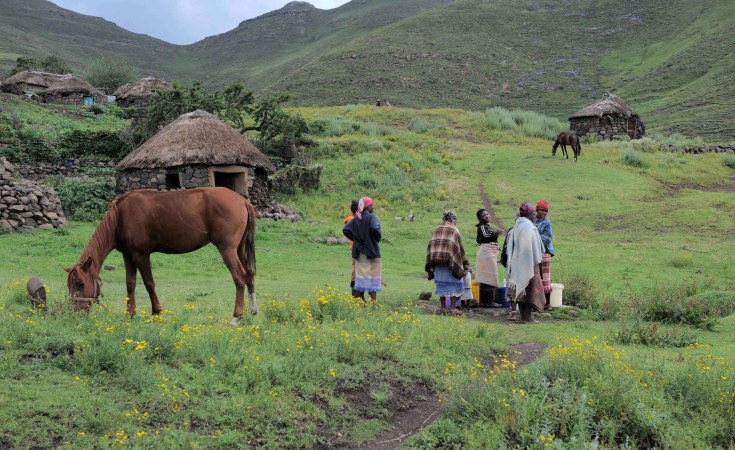Maseru — Lesotho is due for a general election to choose a new national government between February and May of this year. Despite a legal framework that stipulates a general election every five years, it appears none of the actors on the national stage are ready for it. So, are we building up to another snap election?
The last election in 2007 was labelled a snap poll by analysts and politicians primarily because it came three months before the expected date - mid-February instead of May.
This has been attributed mainly to panic by the ruling Lesotho Congress for Democracy (LCD) after the defection of communications minister Tom Thabane and 17 MPs to form the All-Basotho Convention (ABC) in October 2006, which reduced the LCD's majority in the National Assembly to just over 50 percent. In the event, the LCD was returned to power, and Thabane proved to be no threat: today the ABC holds just over 10 seats in parliament.
But for the past two years, the LCD has been locked in a succession battle between party Secretary-General Mothetjoa Metsing and Minister of Natural Resources, Monyane Moleleki. Prime Minister Pakalitha Mosisili, who has yet to pronounce his future plans, appears unable to bring this contest to an end-even if only for the purpose of uniting the party to win an election.
The ruling party has so far failed to hold a court-ordered special conference that would indicate which of the two contenders is likely to lead it into the 2012 campaign. On the ground, MPs are fighting challengers for nomination as candidates in the election. And ambitious politicians who fail to secure party endorsement are threatening to stand as independents, splitting the party vote.
Last week Mosisili survived embarrassment in parliament when an opposition-sponsored vote of no confidence collapsed after Metsing withdrew his name as the candidate to replace him as prime minister.
Mosisili had fired Metsing and two other members of the LCD's executive committee from Cabinet after the abortive special conference two weeks ago, thus ostensibly throwing his weight with the Moleleki faction.
But the stalemate within LCD remains, while opposition has also failed to inspire. Opposition parties are experiencing similar debilitating divisions, and there are suggestions that they would like the poll to be postponed because the Independent Electoral Commission (IEC) is not ready.
With Lesotho's politicians in disarray, an election would take them all by surprise: none have completed the process of selecting a full slate of candidates-and are unlikely to do so before the 90-day election campaign period; few can present the nation with a single, undisputed leader; almost all are led by men who have passed their sell-by dates (Mosisili has been premier since 1998); none has yet presented a clear roadmap of where they want to take the country; and at least 10 groups have been struck off the roll of parties by the IEC because they are virtual one-man outfits with no visible and verifiable structure on the ground.
The argument for postponement made publicly by parties is that the IEC is unprepared.
Here they are likely to cite local government elections held last October, where the performance of the IEC left many questions unanswered: the voters' roll was in a shambles, and the IEC is yet to convince the nation that this problem has been resolved; voter turnout was low (in places as low as 10 percent), threatening the credibility of the poll; and the conduct of the poll itself left much to be desired.
The argument therefore is that if 2011 was a dry run for 2012, the IEC needs to improve its preparations substantially before such an important national undertaking is embarked upon.
A second argument for postponement is precedent: the local government election was originally scheduled for the early part of 2010 but was postponed to October 2011.
Perhaps the only party ready for a poll is the electorate, who appear anxious to exercise their democratic right to choose the next government.
While the grounds on which the politicians are advocating a postponement are understandable, they are not acceptable, and postponing the election would be a mistake.
First, the internal conflicts of political parties show organic weaknesses which should be the drivers of the democratic process; second, the IEC's weaknesses cannot be resolved by technical means only-eliminating the culture of mistrust is a national effort; and third, abrogating constitutional requirements for the timing of national elections, however legally done, is the thin end of the wedge of lawlessness.
Lesotho does not face easy options. A snap election would catch all parties equally unprepared, but postponing the polls cannot be the route to consolidating the country's teetering democracy.
Unfortunately, as usual, the scenario lays the seeds of post-election contestation, in which losers refuse to accept the verdict of the ballot. Just as in the past, minimising the potential for instability will call for statemanship in the country and the region.
Tšoeu Petlane is an independent governance researcher and political analyst in Maseru.


